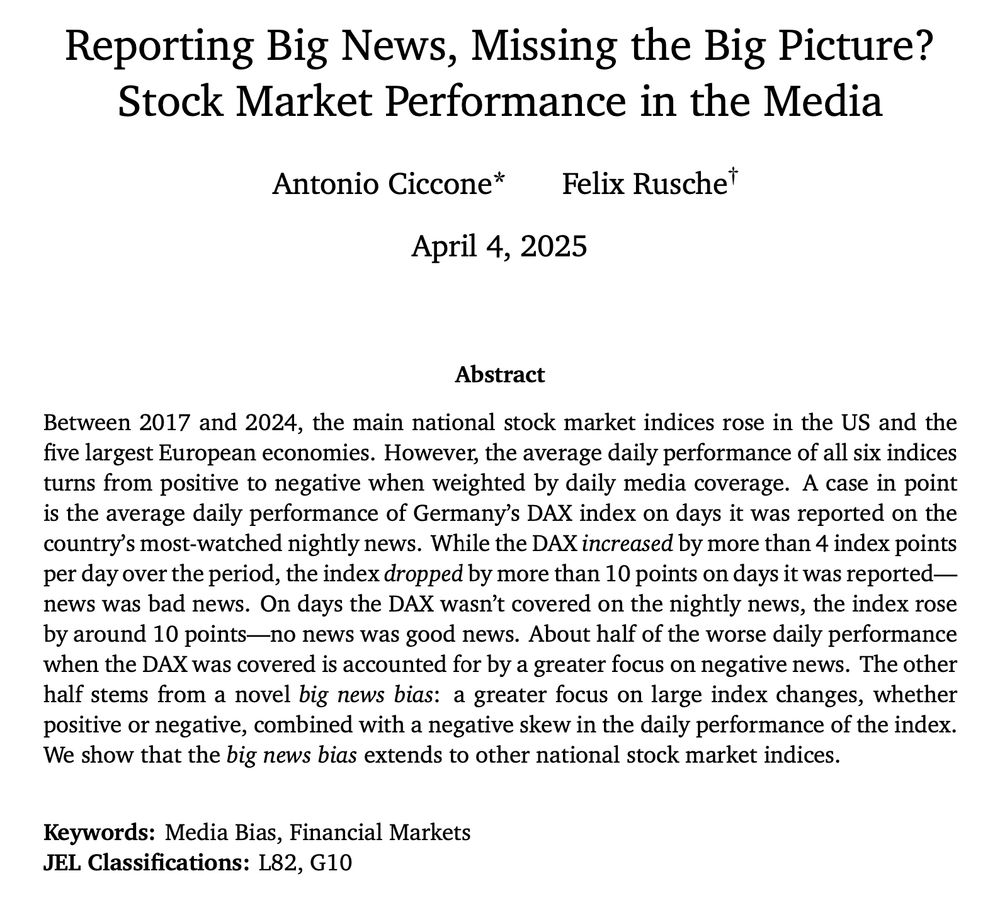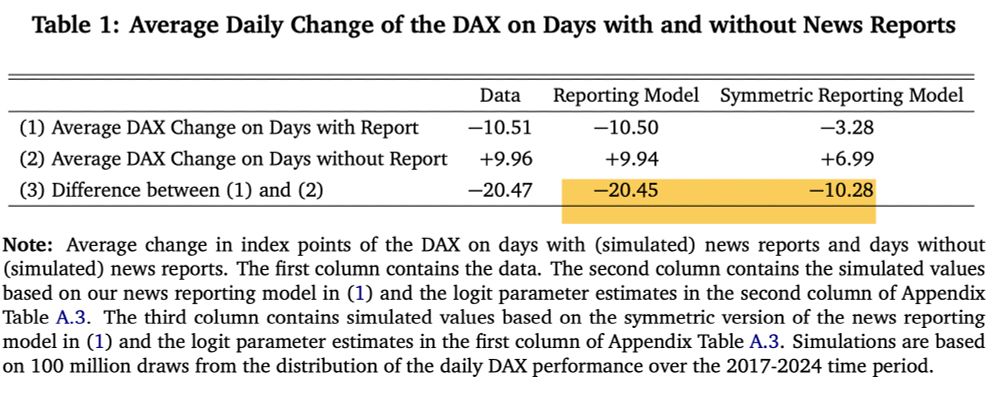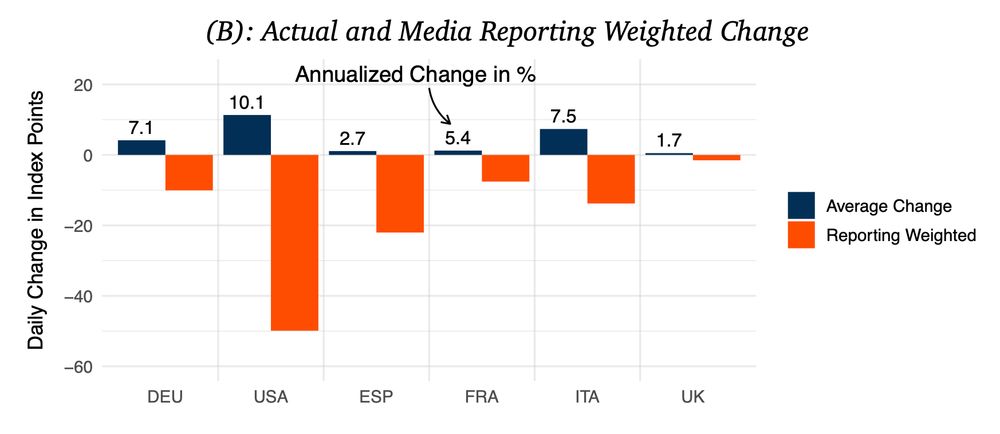
Felix Rusche
@felixrusche.bsky.social
Postdoc at Max Planck Institute: Collective Goods | Labor, Development, Political Economy | felixrusche.github.io
Please find the paper and short summaries on my website: felixrusche.github.io
We are happy about any feedback.
We are happy about any feedback.

April 10, 2025 at 12:20 PM
Please find the paper and short summaries on my website: felixrusche.github.io
We are happy about any feedback.
We are happy about any feedback.
If progress is characterised by many small, incremental improvements with few yet larger setbacks, news reporting will focus on the latter. We also generalise these findings to other indices.
April 10, 2025 at 12:20 PM
If progress is characterised by many small, incremental improvements with few yet larger setbacks, news reporting will focus on the latter. We also generalise these findings to other indices.
The remaining half is explained by a focus on large events in combination with negative skewness in daily changes. As such, we quantify what Rosling et al., @hannahritchie.bsky.social, and @ourworldindata.org have argued for in the past:
April 10, 2025 at 12:20 PM
The remaining half is explained by a focus on large events in combination with negative skewness in daily changes. As such, we quantify what Rosling et al., @hannahritchie.bsky.social, and @ourworldindata.org have argued for in the past:
We decompose this 20-point difference by simulating news reporting with and without negative reporting bias. We find that even when muting the negative reporting bias half of the gap remains.

April 10, 2025 at 12:20 PM
We decompose this 20-point difference by simulating news reporting with and without negative reporting bias. We find that even when muting the negative reporting bias half of the gap remains.
ZDF journalists mention daily changes in Germany’s DAX on 29% of days. While the DAX increased by a daily avg. of 4 index points from 2017-24, it fell by 10 points when mentioned on the news and increased by 10 points when not mentioned. Adding this up results in the above figure.
April 10, 2025 at 12:20 PM
ZDF journalists mention daily changes in Germany’s DAX on 29% of days. While the DAX increased by a daily avg. of 4 index points from 2017-24, it fell by 10 points when mentioned on the news and increased by 10 points when not mentioned. Adding this up results in the above figure.
A case in point is Germany’s most-watched nightly news – the ZDF heute Journal. The nightly news include a 1:30 min segment reporting economic and financial news from the stock market in Frankfurt.

April 10, 2025 at 12:20 PM
A case in point is Germany’s most-watched nightly news – the ZDF heute Journal. The nightly news include a 1:30 min segment reporting economic and financial news from the stock market in Frankfurt.
To motivate: From 2017 to 2024, the main national stock market indices rose in the US and the five largest European economies. Yet, the average daily performance of all six indices turns from positive to negative when weighted by coverage of the countries’ ten most-read outlets.

April 10, 2025 at 12:20 PM
To motivate: From 2017 to 2024, the main national stock market indices rose in the US and the five largest European economies. Yet, the average daily performance of all six indices turns from positive to negative when weighted by coverage of the countries’ ten most-read outlets.
March 21, 2025 at 1:50 PM
March 21, 2025 at 1:49 PM

